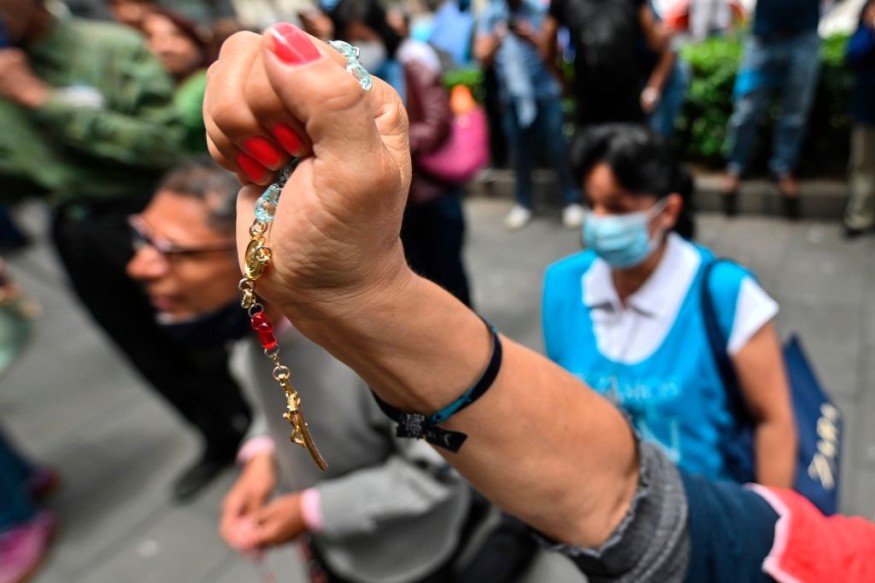Mexico, Canada Prepare for Influx of Americans Seeking Abortions

Activists in Mexico and Canada are preparing for a possible wave of Americans crossing the border to find access to abortion services once the Supreme Court overturns the Roe v. Wade ruling.
According to The Hill, activists in both countries said they were getting ready for the influx of Americans after a Supreme Court opinion regarding the overturn of Roe v. Wade leaked.
Mexico has been known to provide cheap access to healthcare for Americans near the U.S. border. Mexican activists said they have already seen an increase in the number of women coming from Texas to seek access to abortion pills.
Veronica Cruz Sanchez, the founder of Las Libres, a Mexican organization advocating for abortion rights, told The Hill that women are crossing the U.S.-Mexico border into states from Baja California and Sonora in the west to Coahuila and Tamaulipas in the east.
Sanchez's organization helps women get access to abortion pills, which can be taken at home. The at-home procedure is done without immediate supervision but is carried out under the protocols of the World Health Organization (WHO).
Sanchez said they only had Texas in mind when they started with this idea. However, in the last recent months, she noted that they had seen more women from other parts of the U.S.
Abortion in Mexico
The Guardian reported that Mexico's Supreme Court ruled that it was unconstitutional to criminalize abortion. However, access to this health service still varies by state in Mexico.
Vero Cruz, the advocacy coordinator with Las Libres, noted that Americans could technically have access to surgical abortions in public clinics in certain Mexican states for free. However, Cruz said she does not know anyone who has done so yet.
Mexican states such as Sinaloa, Coahuila, and Baja California offer surgical abortions for only up to 12 weeks of pregnancy. Cruz said Tijuana and Coahuila recently set up services for a wave of Americans seeking an abortion.
Meanwhile, Carolyn Egan, spokesperson for the Abortion Rights Coalition of Canada, said Americans will be warmly received in Canada too.
Egan noted that she has seen people cross the Canada-U.S. border for abortions, going north to south. She added that many Canadians were "upset" about the pending end of the Roe v. Wade measure.
She noted that there was "tremendous upset, distress and anger that Americans would be in the situation of having to face this kind of thing." So, she said her sense was "people will do everything they can to make access easier."
Roe v. Wade
The United National special rapporteur, Dr. Tlaleng Mofokeng, has urged the Supreme Court not to abolish the federal protections for abortion rights in America.
Roe v. Wade is the 1973 landmark protecting a woman's right to an abortion. It also invalidated dozens of state abortion bans.
Mofokeng told The Guardian that the right to abortion "speaks directly to women and girls, who are often in many societies not seen as people." At least 26 states would be certain or likely to outlaw abortion if the Supreme Court were to end protections for abortion.
It would prompt women to travel hundreds of miles to the nearest clinic or self-manage abortions with medications, which could heighten the risk of prosecution, abuse, and violence for both women and doctors.
Mofokeng was the lead expert in an amicus brief to the Supreme Court, wherein she urged justices not to reverse the abortion rights on human rights grounds.
READ MORE : Pres. Joe Biden Labels Supreme Court Leaked Opinion on Abortion Case as "Radical Decision"
This article is owned by Latin Post.
Written by: Mary Webber
WATCH: Why a Growing Number of Latin American Countries Are Legalizing Abortion - From PBS NewsHour
Subscribe to Latin Post!
Sign up for our free newsletter for the Latest coverage!














